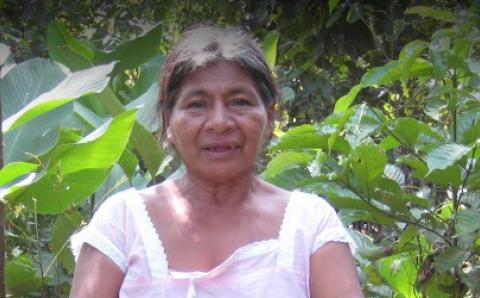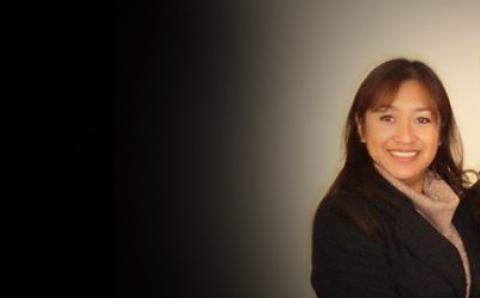In the television show “Community,” a doctor tells health fanatic Jeff Winger that he has high cholesterol.
“But I treat my body like a temple!” he says.
To which his doctor replies, “I can’t be the first person to tell you that the temple doesn’t last forever. I mean, it's made of hamburger. This is a temple of doom. . . . It represents the inconvenient fact that all good things—be they people or movie franchises—eventually collapse into sagging, sloppy, rotten piles of hard-to-follow nonsense.”
It’s a funny exchange with a serious point. No matter how hard we may try to keep up the “temple,” our efforts, ultimately, are doomed. Everyone ages. Everyone gets sick. Everyone dies. And yet many of us do our very best to stave off the effects of illness and old age as long as possible.
Broadly speaking, there are three main ways we try to stay healthy. The first is by visiting the doctor or hospital when we are sick or injured to try to take care of our immediate problem. That’s called “curative” medicine. The second is by eating well and getting exercise, either on our own or guided by nutritionists or trainers, to maintain good health. That’s “preventive” medicine. All of us have some experience with these two traditional ways of safeguarding our health. A third way, though, is relatively new. It’s called “personalized” medicine.
Personalized medicine is a hybrid of preventive and curative medicine. As the name implies, personalized medicine is about developing treatments and management for a variety of illnesses in a way that’s tailored to an individual patient, but before the symptoms of a disease appear. The key to personalized medicine is genetics. By analyzing a person’s specific genetic code, doctors—and, to an increasing degree, the patients themselves—can identify the risk of developing a disease. And if they choose to, they can take targeted action to head it off at the pass.
This practice is gaining in popularity. A high-profile example of personalized medicine is actress Angelina Jolie’s decision to undergo a double mastectomy, even though she showed no symptoms of breast cancer. Jolie’s mother had passed away at age 56 after fighting ovarian cancer for a decade. A genetic test revealed that Jolie had inherited a faulty copy of the BRCA1 gene from her mother, meaning that she had an 87 percent risk of developing breast cancer and a 50 percent risk of ovarian cancer. Rather than dealing with the potential cancer if and when it came, Jolie made the decision to prevent it through radical surgery.
Jolie’s case was controversial, but early intervention, including surgery and submitting to drug trials, is increasingly an option for people who carry faulty genes that could make them susceptible to inherited forms of dementia and certain types of cancer. It’s also big business. A major study of the personalized medicine sector in 2009 showed that the market for personalized medicine in the United States was $252 billion. The study estimated that it would grow by 11 percent a year and be worth $452 billion by 2015. This includes not only the sale of genetic tests but pharmaceutical, medical device, and diagnostics support for the burgeoning industry.
With this new approach to medicine has come a variety of ethical concerns. For example, if I submit to a genetic test for Alzheimer’s disease, the data from my test becomes not only valuable to researchers but is also essential to developing effective treatment. However, since there’s nothing more personal and private than my own genetic code, how can I keep my privacy safe while still helping to move research forward?
Another issue is access to testing and treatment. Right now, personalized medicine is expensive. The costs of tests for a faulty BRCA1 gene, for example, can range from hundreds to thousands of dollars, depending on the type of test. So the question becomes this: are we creating two classes of patients? The rich, who can afford genetic screening and treatment, and the poor, who cannot?
But a third ethical issue in personalized medicine is, in many ways, the thorniest. If I learn that I carry the risk of a disease—as Jolie did—should I be able to direct doctors to take action, even though there’s a chance I may not develop the disease at all? If the first rule for physicians is “do no harm,” where does highly invasive surgery on healthy tissue fit into the mix?
For Christians, the ethical issue also takes on a spiritual dimension—and takes us into that most maddeningly circular of dinnertime theological discussions: the issue of free will versus predestination.
After all, we are people who profess, along with the psalmist, that God created our inmost being and knit each of us together in our mother’s womb. We believe Christ’s words that not a hair can fall from our head without the will of the Father in heaven. We know that our days are divinely numbered, and we trust that when Jesus asks, “Can any one of you by worrying add a single hour to your life?” he is referring to the plan God has for our lives. But how, in all of this, does personalized medicine—which seems to give us greater freedom to decide the course of our own life and health—square with our belief in that divine plan? Does giving ourselves over to predictive genetic testing represent a kind of vanity or, worse, a kind of idolatry? At what point does doing our part to “take care of the temple” become a kind of self-worship? Never before have we had such an intimate and detailed look at the very stitches God used to knit us together—and never before have we had as much control over how and when we allow those stiches to ultimately and inevitably unravel.
Christians have spent a lot of time discussing medical issues around the beginning of life (abortion) and the end of life (euthanasia). But as new genetic tests become available, we’re seeing a blurring of those lines. Every day we get closer to the possibility that genetic screening at the moment of our birth could give us information on all the risk factors in our lives—and possibly pinpoint the cause, or even the year, of our probable death. Knowing these things would put pressure on parents to make all kinds of choices for their children that they have never had to make before. Can you imagine holding your newborn and getting the news that she stands a 75 percent chance of developing early onset dementia? That kind of insight used to be the domain of God himself—and it represents a very different kind of fruit of the tree of knowledge for all of us.
One thing is certain: as personalized medicine continues to become more widely available—and as our population continues to age and life spans continue to grow—these and other spiritual issues around “temple keeping” are, for many of us, going to become less a question of theology and more of an issue of personal and clinical experience.
It’s a dimension of human health that deserves some serious spiritual attention.
Article you may also be interested in:
About the Author
Lloyd Rang is the Communications Director at the Faculty of Medicine at the University of Toronto and a member of Rehoboth CRC in Bowmanville.








